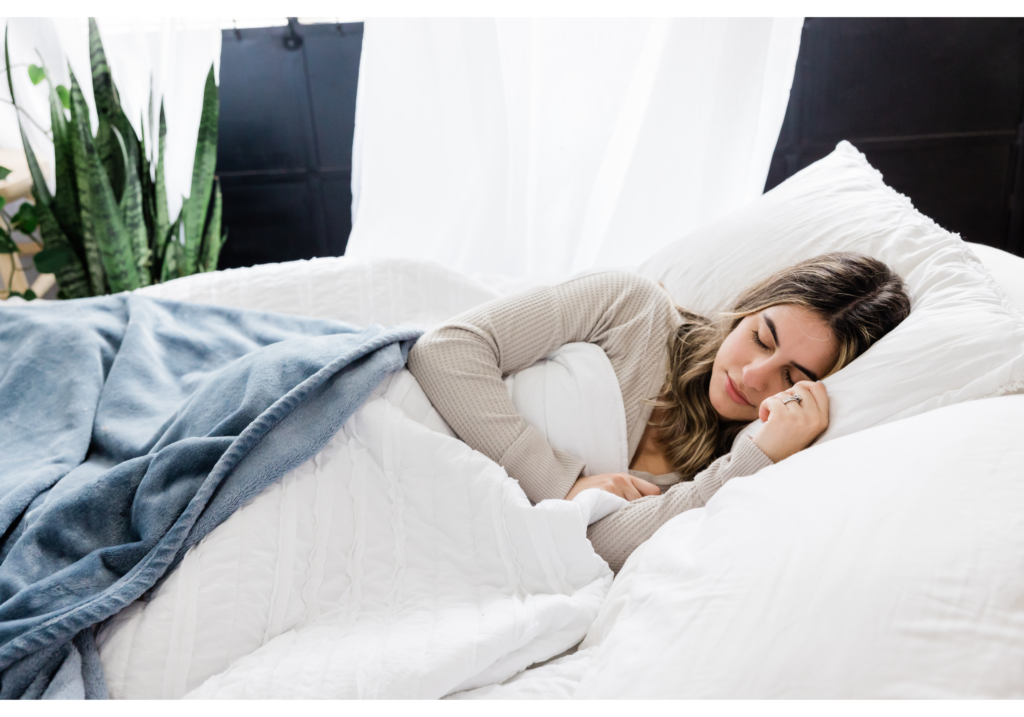
1. LIGHTS OUT BY 10:00 P.M
During sleep you produce a hormone that affects brain function and mood as well as physical endurance and immunity
You can increase your production of this hormone by a factor of fivefold depending on when you go to sleep.
Peak hours for producing this hormone are between 10:00 p.m. and midnight.
2. PULL THE SHADES AND SLEEP IN A DARK BEDROOM
Darkness triggers the production of the sleep hormone melatonin. Melatonin is a hormone released by the pineal gland. It helps your body know when it’s time to sleep and when it’s time to wake up.
3. TURN OFF YOUR COMPUTER AT LEAST NINETY MINUTES BEFORE YOUR HEAD HITS THE PILLOW
The light emitted from LED screens (TVs, computers, smartphones, and video games) produce what’s called blue light. Blue light is interpreted by the brain as daylight. Exposure to high levels of blue light close to bedtime can suppress the production of melatonin.
4. FEEL THE SUNSHINE WHENEVER POSSIBLE DURING THE DAY
The more sun exposure you get during the day, the greater the melatonin
you’ll produce at night.
5. TAKE A WARM BATH RIGHT BEFORE BED
Believe it or not, taking a warm bath actually cools your core body temperature once you’re out of the tub, which allows you to get a deeper nights sleep.
6. SIP A CUP OF WARM MILK BEFORE BED
Warm milk has certain peptides that help lower cortisol (the stress hormone) and support sound sleep.
7. TAKE SHORT NAPS
Don’t nap for more than twenty minutes and don’t take your nap later than mid afternoon, or this may interfere with your ability to fall asleep at night.
8. SLEEP WITH YOUR HEAD TO THE EAST OR SOUTH
Sleeping with the top of the head facing in the southern direction, especially if you have health issues, is very beneficial. These recommendations don’t change in the Southern Hemisphere.
9. AVOID SLEEPING PILLS
Sleeping pills may reduce sleep-onset time and increase hours slept, but they don’t produce deep sleep. That’s why so many
people report having a “hangover” or feeling like a “zombie” the next day. Instead try a herbal remedy
10. GIVE THANKS FOR ALL THE GREAT THINGS THAT HAPPENED THAT DAY
Instead of counting sheep, try counting your blessings.


Recent Comments